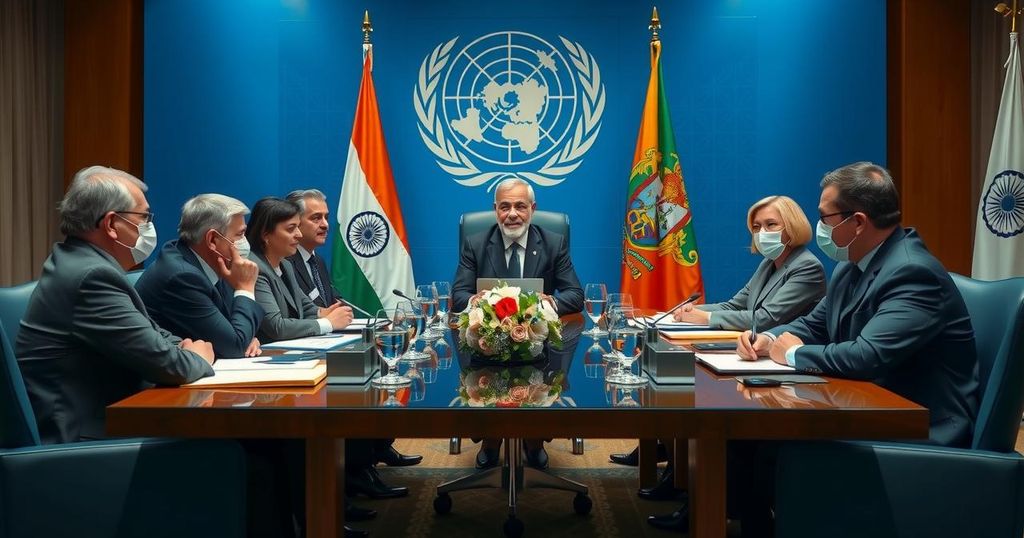Russia has officially supported the notion that India, Brazil, and African countries should occupy permanent seats in the UN Security Council. Russian Foreign Minister Sergey Lavrov emphasized that these nations’ inclusion is essential for representing the global majority. India has long advocated for reform of the UNSC, asserting that it does not reflect modern geopolitical realities. The support from world leaders for India’s bid indicates growing momentum towards an expanded and more representative Council.
Russia has expressed its belief that India, Brazil, and several African nations should be granted permanent representation in the United Nations Security Council (UNSC). This assertion was made by Russian Foreign Minister Sergey Lavrov during an interview, where he emphasized the necessity of these countries’ inclusion to ensure the representation of the global majority. Lavrov articulated that the absence of nations like India and Brazil from permanent seats in the Security Council has been a glaring oversight for an extended period. In recent discussions regarding UN reform, India has been a prominent advocate for a revamp of the Security Council, arguing that its current structure, established in 1945, is ill-suited for contemporary global dynamics and fails to adequately reflect modern geopolitical realities. Notably, India has repeatedly stressed its claim for a permanent seat at the Security Council’s table. Furthermore, it is noteworthy that key world leaders, including British Prime Minister Keir Starmer and US President Joe Biden, have lent their support to India’s long-standing aspiration for a permanent position in the UNSC. India’s last term as a non-permanent member concluded in 2022, coinciding with a rising global demand for an expansion of permanent membership to mirror the evolving global landscape.
The United Nations Security Council, formed in 1945 after World War II, consists of 15 member states, five of which hold permanent status—China, France, Russia, the United Kingdom, and the United States—while the remaining ten serve temporary terms. The debate surrounding the reform of the Security Council has gained traction over the years, primarily driven by the call for greater representation of emerging nations and developing countries. India, Brazil, and various African nations have consistently highlighted their exclusion from permanent membership as a significant gap in the Council’s efficacy. The current global order, characterized by shifts in power dynamics and economic influence, intensifies the discourse surrounding reforms aimed at enhancing the legitimacy and effectiveness of the UNSC. As discussions evolve, the advocacy for reform has garnered increasing support from several key international leaders.
In conclusion, Russia’s endorsement of India’s and Brazil’s pursuit of permanent seats in the UN Security Council emphasizes a growing sentiment among various nations regarding the need for reform within this critical international body. As India continues to push for its rightful place in the UNSC, the collaborative efforts of prominent world leaders in supporting this initiative indicate a potential shift towards a more representative and relevant Security Council that aligns with the realities of the 21st century.
Original Source: www.business-standard.com






